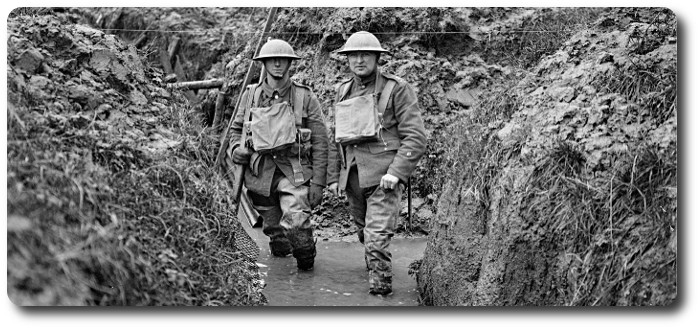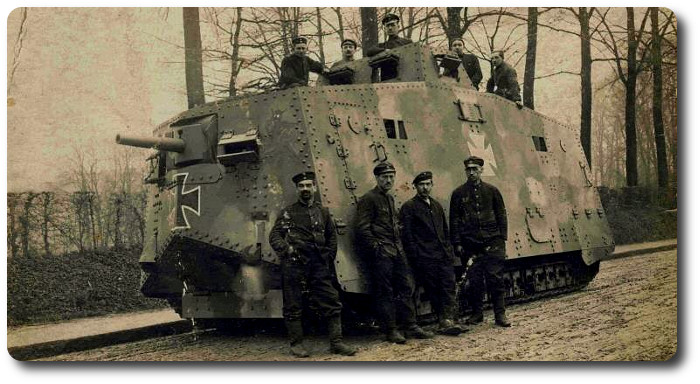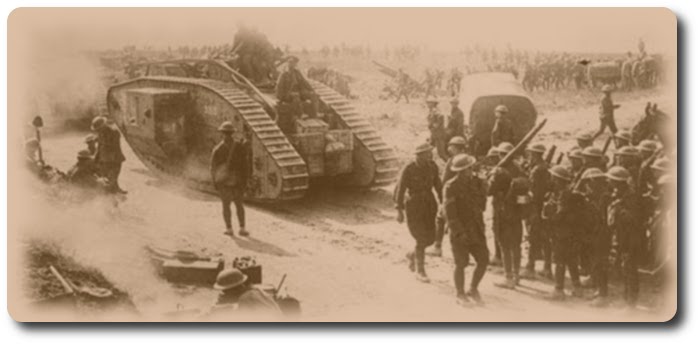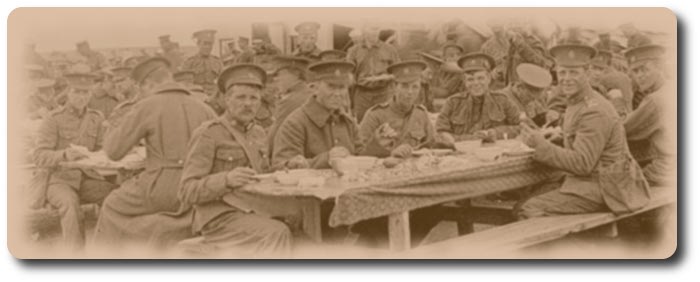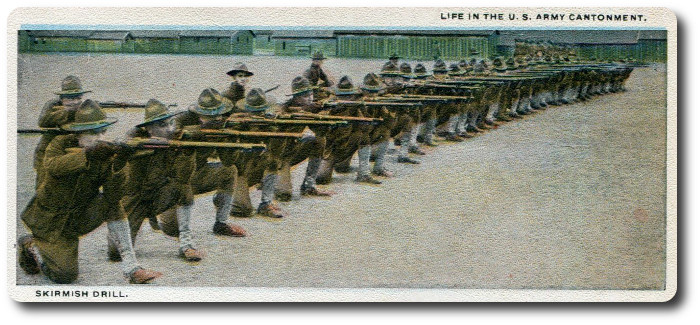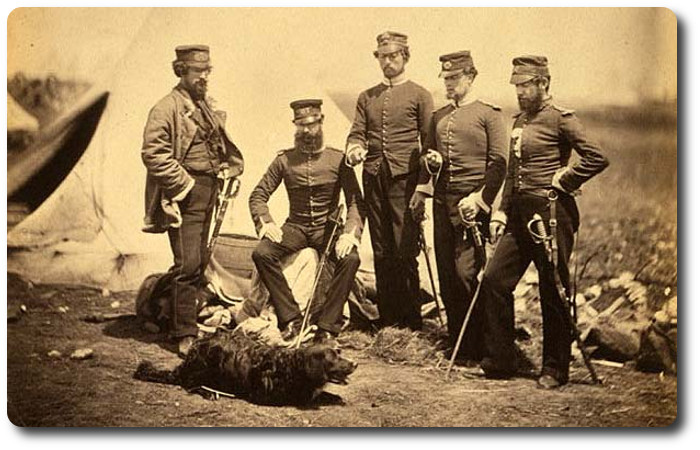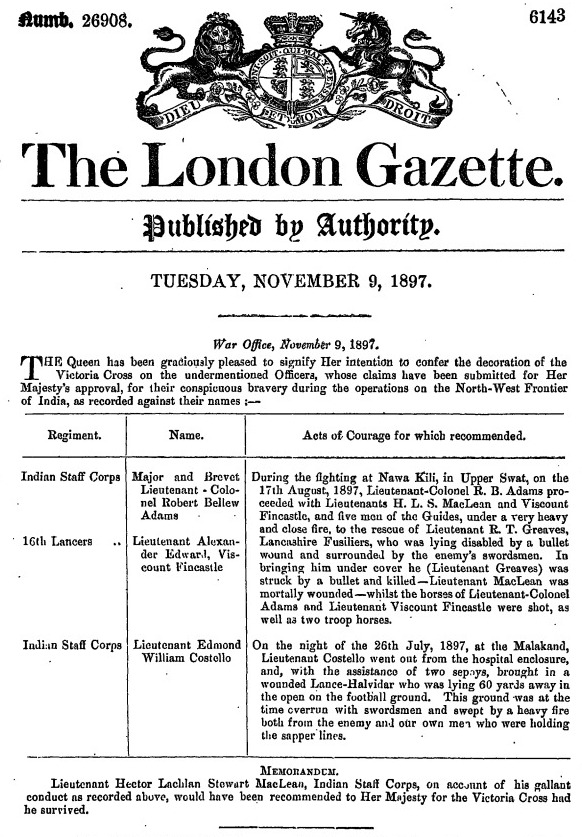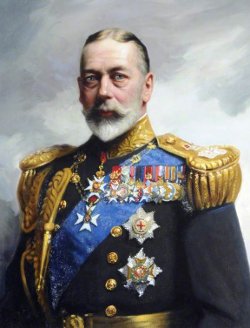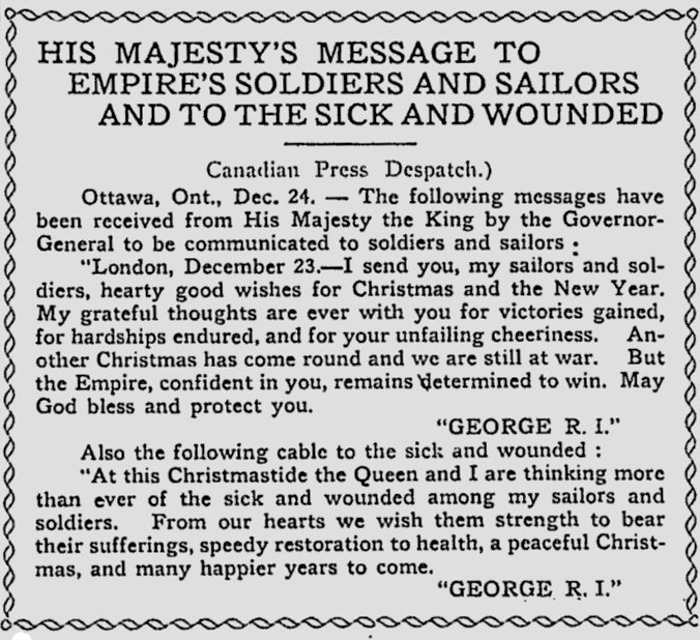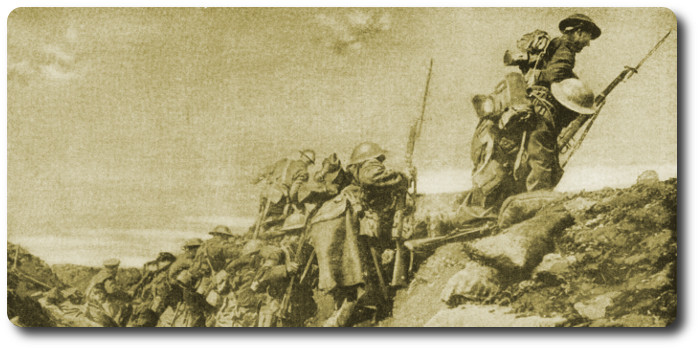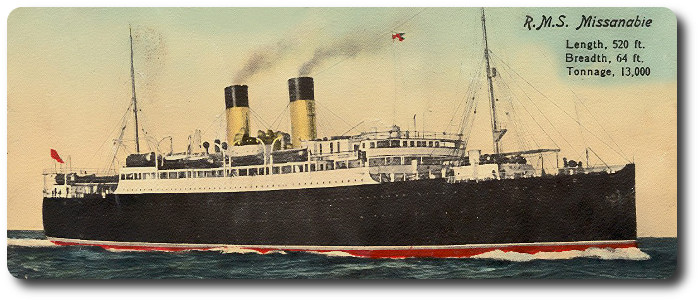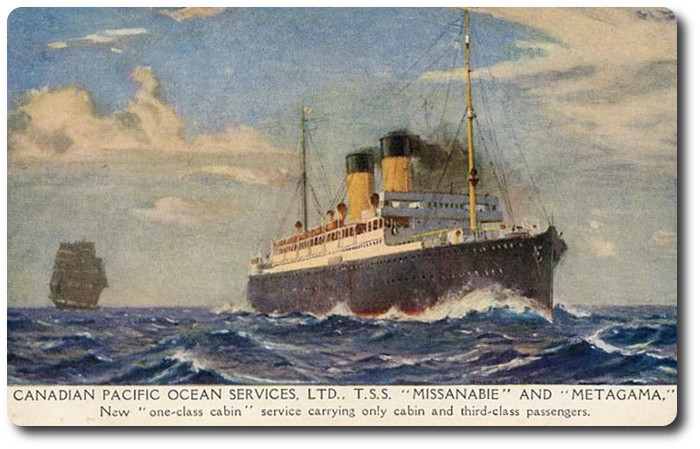Valour---Meaning of the Medals
Topic: Medals
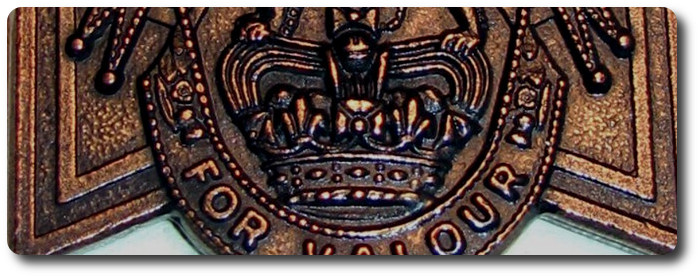
Valour—What the War Has Shown—Meaning of the Medals
The Sydney Morning Herald, Sydney, Australia, 8 November 1916
In no war have more gallant deeds be performed than in this one. It might seem unnecessary to state this fact, seeing that there never before has been a war on anything like the present scale—a war in which millions of men are fighting and billions of money being expended. But, on the other hand, there has never been a war with such colossal and deadly engines of destruction. All the devices that science, in collaboration with the military experts, has been capable of producing, including such inhuman inventions as liquid fire and poison gas, have been brought into fiendish play; and in other respects there have never been so many deterrents against exhibitions of bravery. Trench warfare, for instance, in which opposing armies fight within a few yards of each other—fight, for the most part, without actually seeing each other—is one of the greatest of all deterrents. To expose oneself even for a moment is deadly peril.
And yet men have risked their lives day after day, facing all dangers, in order to win the coveted honours that are reserved for a brave manhood. Not that the chance of winning the V.C. or other distinction is the only impelling motive to brave deeds. It is more than probably that at the actual moment when great danger faces the soldier, and he is spurred to supreme bravery, the thought of the winning of possible honours is the furthest from his mind. He is thinking only of the work in hand, whether it is a bombing raid on the enemy's trench, a bayonet charge, or possibly the more pressing, but none the less dangerous, work of bringing in a wounded comrade under a murderous fire.
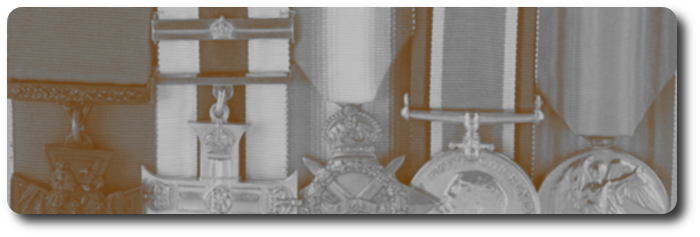
"In such moments," said the Irishman O'Leary, who won the V.C. in the early days of the war, "you seem to forget all about danger—all about yourself—and you simply go on fighting like the devil, fascinated by it." That is so in some cases, no doubt—just as it may be true enough in some cases, as another V.C. put it, that "this thing they call bravery is mostly foolhardiness"—but there can be no doubt also that hundreds, thousands, of men who are honoured for their bravery know full well the danger they are running, and that their lives are hanging by a thread. They know that death may come at any moment—they know that they will certainly be wounded—but they go on with the business in hand.
And many of the bravest of the brave are never seen at all. They go out into the charge, and they perform wonderful deeds of valour, and there an end—they are never heard of more.
During the first year of the war no fewer than 100 V.Cs. were awarded to officers and men fighting with the British forces, including Lance-Corporal Jacka and several other Australians; and in the year that has since passed the list has been added to largely. There were, for instance, twenty awards of this coveted distinction in September last, including four Australians—Privates T. Cooke (who was found dead beside his gun), J. Leak, W. Jackson, and M. O'Meara. To record the names of all those to whom the D.S.O., the M.C., and the D.C.M. have been awarded for their superb courage and devotion would fill a volume. If the peril was never greater, never were Britons braver. While we have men like these the Empire need not fear. "While we have boys like this lad," said Sir John Bethell, M.P., at the Mansion House meeting held on September 13 for the purpose of inaugurating a national memorial to John Travers Cornwall, the boy hero of H.M.S. Chester in the Jutland battle, "England will never come under the foot of a proud conqueror."
What the Medals Stand For
It is not without interest to glance at the different medals that are awarded for bravery and consider the distinction between this one and that one, for to the lay mind a good deal of confusion exists on the subject.
 The Victoria Cross was instituted in 1856 as a reward for "some signal act of valour or devotion to country performed in the presence of the enemy." It can be given to every grade and rank, and to those who are not of commissioned rank it carries with it a pension of £10 a year, with an additional £5 per year for each clasp. Lance-Corporal (now Lieutenant) Jacka, for instance, wears two clasps. He won the V.C. at Gallipoli, and in France he again performed "a signal act of valour," which would have won it for him had he not already been the proud possessor of it. Those who have won the Victoria Cross during the war include officers and men of both land and sea forces, as well as of the flying service. The late Flight-Commander Warneford won it. Flight-Commander Hawker won it. In the navy no deed stands out more conspicuously than that of Lieutenant N.D. Holbrook, who, in command of submarine B11, entered the Dardenelles, in spite of very strong currents, and after diving under five rows of mines torpedoed the Turkish battleship Messudieh, retiring safely despite heavy gunfire and torpedo-boat attacks.
The Victoria Cross was instituted in 1856 as a reward for "some signal act of valour or devotion to country performed in the presence of the enemy." It can be given to every grade and rank, and to those who are not of commissioned rank it carries with it a pension of £10 a year, with an additional £5 per year for each clasp. Lance-Corporal (now Lieutenant) Jacka, for instance, wears two clasps. He won the V.C. at Gallipoli, and in France he again performed "a signal act of valour," which would have won it for him had he not already been the proud possessor of it. Those who have won the Victoria Cross during the war include officers and men of both land and sea forces, as well as of the flying service. The late Flight-Commander Warneford won it. Flight-Commander Hawker won it. In the navy no deed stands out more conspicuously than that of Lieutenant N.D. Holbrook, who, in command of submarine B11, entered the Dardenelles, in spite of very strong currents, and after diving under five rows of mines torpedoed the Turkish battleship Messudieh, retiring safely despite heavy gunfire and torpedo-boat attacks.
The D.S.O. (Distinguished Service Order), instituted in 1886 by the late Queen Victoria, is awarded only to naval and military officers, but not including Indian native officers, for "individual instances of meritorious or distinguished service in war." VC_MC-bar_trio_medal_group_crop_rd700px.pngThe order is in no sense a sort of second-class Victoria Cross, although the services rewarded are generally rendered in action.
The M.C. (Military Cross) was instituted in 1914 for captains and commissioned officers of lower grade and warrant officers of the King's army for distinguished services in the field, only on recommendation by the Secretary of State for War. The cross is worn immediately after all orders and before all decorations, with the one exception of the Victoria Cross, and recipients are now permitted to use "M.C." after their names.
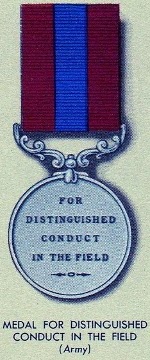 The D.C.M. (Distinguished Conduct Medal), instituted in 1862, is awarded for distinguished conduct on the field by non-commissioned officers and men. It is the equivalent of the M.C. for commissioned officers.
The D.C.M. (Distinguished Conduct Medal), instituted in 1862, is awarded for distinguished conduct on the field by non-commissioned officers and men. It is the equivalent of the M.C. for commissioned officers.
The D.S.C. (Distinguished Service Cross), originally known as the Conspicuous Service Cross, was instituted in 1901. The title was changed in 1914, when all officers below the rank of lieutenant-Commander were made eligible for the award. It is bestowed in those cases where the services rendered are not considered to warrant the award of the D.S.O.
the D.S.M. (Distinguished Service Medal) was instituted in 1914. It is awarded to chief petty officers, petty officers, and men of the navy, and non-commissioned officers and men of the Royal Marines, in cases were the D.S.O. would be inappropriate—"such men as may at any time show themselves to the fore in action, and set an example of bravery and resource under fire."
There is also the India Distinguished Service Medal, which was instituted in 1907 as a reward for both commissioned and non-commissioned officers of the regular and other forces in India, and may be conferred by the Viceroy. The Order of Merit (India) dates from 1837, and it was for long regarded as the Sepoys' V.C. Some of the Indian officers now fighting for the Empire wear both the V.C. and the Order of Merit, as well as the Order of British India, which is awarded to native officers only for long and honourable service.
The M.M. (Military Medal) is a new decoration. It was instituted by Royal Warrant in April last [1916] for "bravery by non-commissioned officers and men on the field."

Medal for Nurses
For the first time the War Office has recently given full recognition of the heroism of women who have rendered signal service by nursing wounded soldiers within range of the enemy's guns. In august last the names of six women were included in the list of awards of the Military Medal "for bravery in the field." Here are the six: Lady Dorothie Mary Evelyn Feilding (Monro Motor Ambulance); Matron Miss Mabel Mary Tunley, R.R.C., Q.A.I.M.N.S.; Sister Miss Beatrice Alice Allsop, Q.A.I.M.N.S. (R.); Sister Miss Norah Easeby, Q.A.I.M.N.S. (R.); Staff Nurse Miss Ethel Hutchinson, Q.A.I.M.N.S. (R.); Staff Nurse Miss Jean Strachan Whyte, T.F.N.S. Miss Tunley, Miss Whyte, Miss Easeby, and Miss Allsop were wounded, but were "still at duty, July 7, 1916," according to the official statement. Lady Dorothie Fielding, second of the seven daughters of the Earl of Denbigh, was one of the first women of the British peerage to offer her services to her country in any capacity at the front. She has been in the field since September, 1914. She belongs to one of England's fighting families, and King Albert of Belgium has conferred on her the Cross of the Order of Leopold "for Red Cross services rendered on the battlefields of the north since the beginnings of the war." She has also been mentioned in Brigade Orders by the Rear-Admiral commanding the French Marine Fusiliers, with whom she has done much work, for "giving to almost daily the finest example of contempt of danger and devotion to duty"
The Silver Badge
The announcement was recently made that the King had approved the issue of a Silver War Badge for men discharged from the army on account of age or sickness. The badge will go "to officers and men of the British, Indian, and Overseas Forces, who have served at home or abroad since August 4, 1914, and who, on account of age or physical infirmity arising from wounds or sickness caused by military service, have, in the case of officers, retired or relinquished their commissions, or, in the case of men, discharged from the army."

Posted by regimentalrogue
at 12:01 AM EST
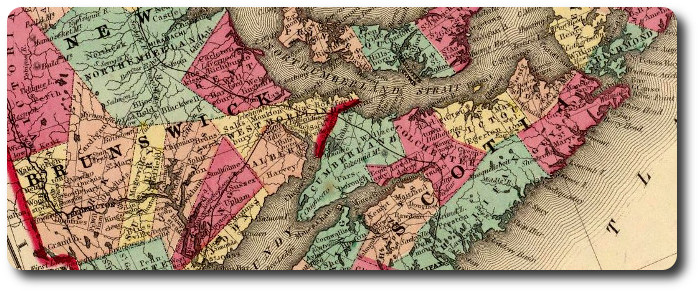




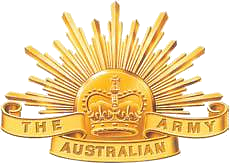 The Age, Melbourne, Australia, 17 June 1960
The Age, Melbourne, Australia, 17 June 1960
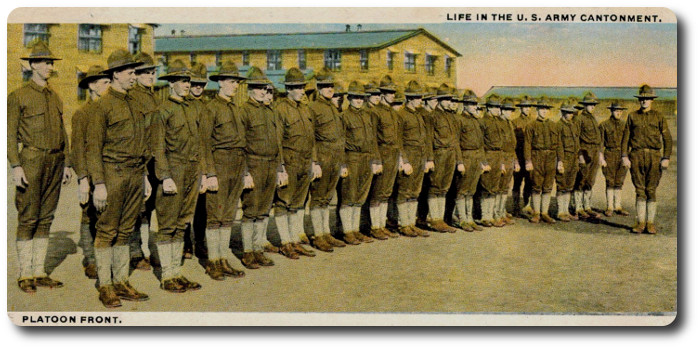

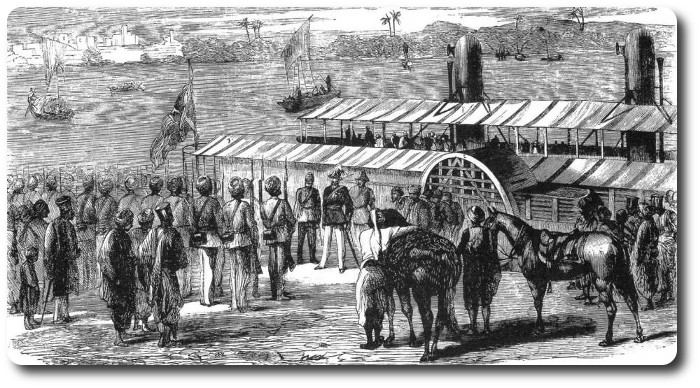
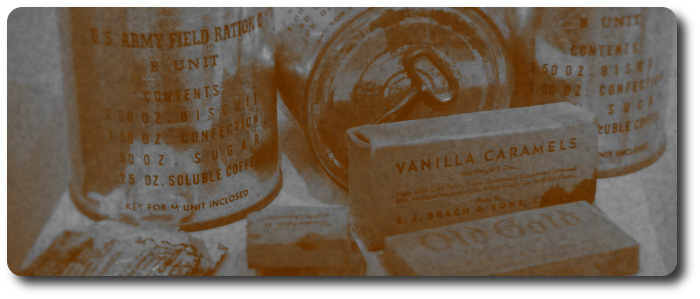
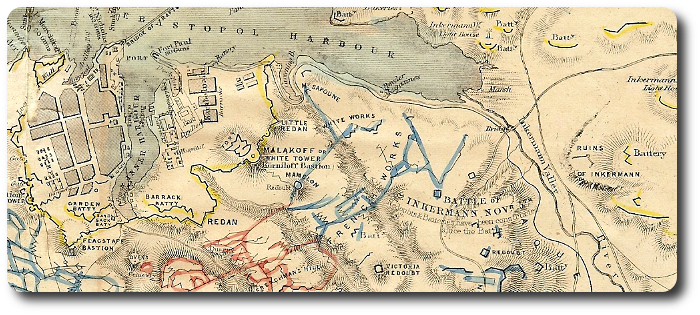


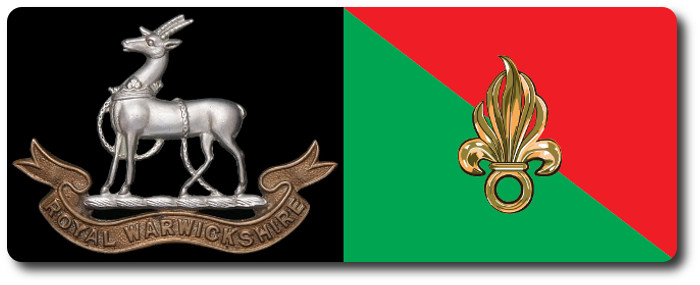
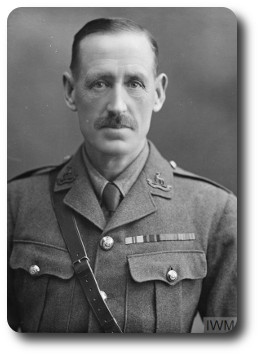 London, Sept. 8.—All England is ringing with the story of
London, Sept. 8.—All England is ringing with the story of 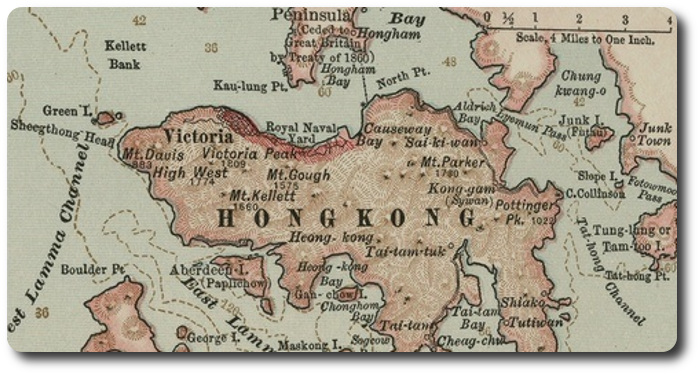


 The
The  The
The 
